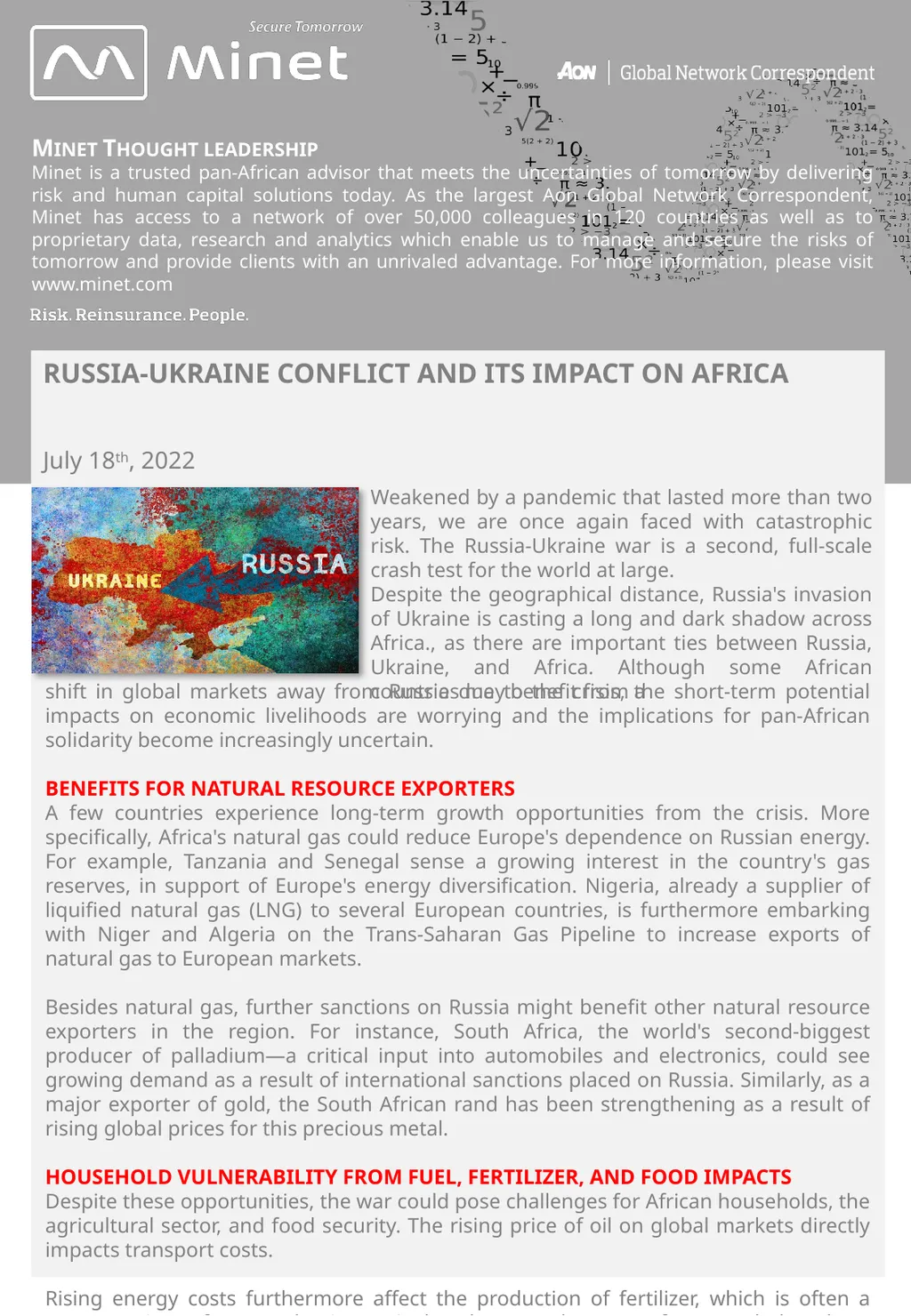
Author : olivia-moreira | Published Date : 2025-07-16
Description: Russia-Ukraine conflict and its impact on Africa July 18th, 2022 Minet Thought leadership Minet is a trusted pan-African advisor that meets the uncertainties of tomorrow by delivering risk and human capital solutions today. As the largestDownload Presentation The PPT/PDF document "" is the property of its rightful owner. Permission is granted to download and print the materials on this website for personal, non-commercial use only, and to display it on your personal computer provided you do not modify the materials and that you retain all copyright notices contained in the materials. By downloading content from our website, you accept the terms of this agreement.
Here is the link to download the presentation.
"Russia-Ukraine conflict and its impact on Africa"The content belongs to its owner. You may download and print it for personal use, without modification, and keep all copyright notices. By downloading, you agree to these terms.













